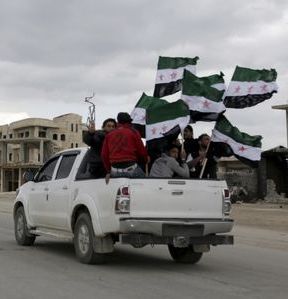World leaders hail progress in Syria as truce brings sharp drop in violence
A shaky cease-fire in Syria brokered by Moscow and Washington has survived its first week, outlasting skeptics’ expectations and providing some hope that a diplomatic solution to the five-year-old war might be possible. World leaders hailed “real progress” in the country on Friday, but fresh air strikes showed the fragility of the week-old truce as the opposition cast doubt on its attendance at talks next week in Geneva.
This cessation of hostilities is by no means perfect but it has reduced the level of violence, it has created an opportunity for some humanitarian access.
British Foreign Secretary Philip Hammond
With daily incidents of artillery shelling, airstrikes and clashes, it would be easy to dismiss the “cessation of hostilities” as a charade. But the partial truce, which came into effect last Saturday, has dramatically reduced overall violence across the devastated country — a remarkable accomplishment in a war that has killed a quarter million people, displaced half the population and decimated towns and villages. Much now depends on whether peace talks actually resume next week and make progress — and on the determination of the Russians and Americans to prevent a full-scale resumption of fighting.
We want a speedy resumption of the negotiations in Geneva, but two conditions must be fulfilled: access for all Syrians to humanitarian aid, and full respect of the ceasefire.
French Foreign Minister Jean-Marc Ayrault

Syria